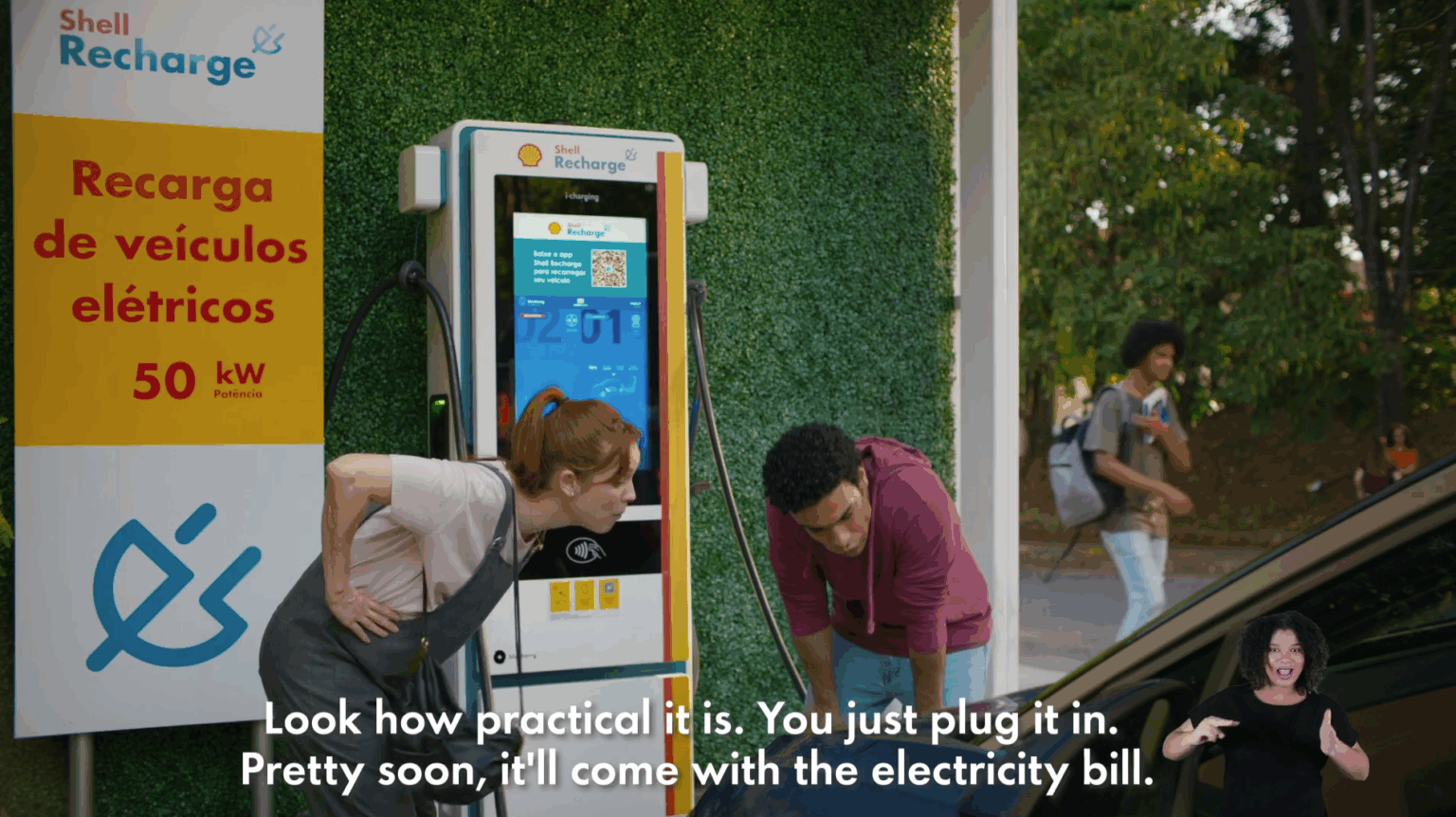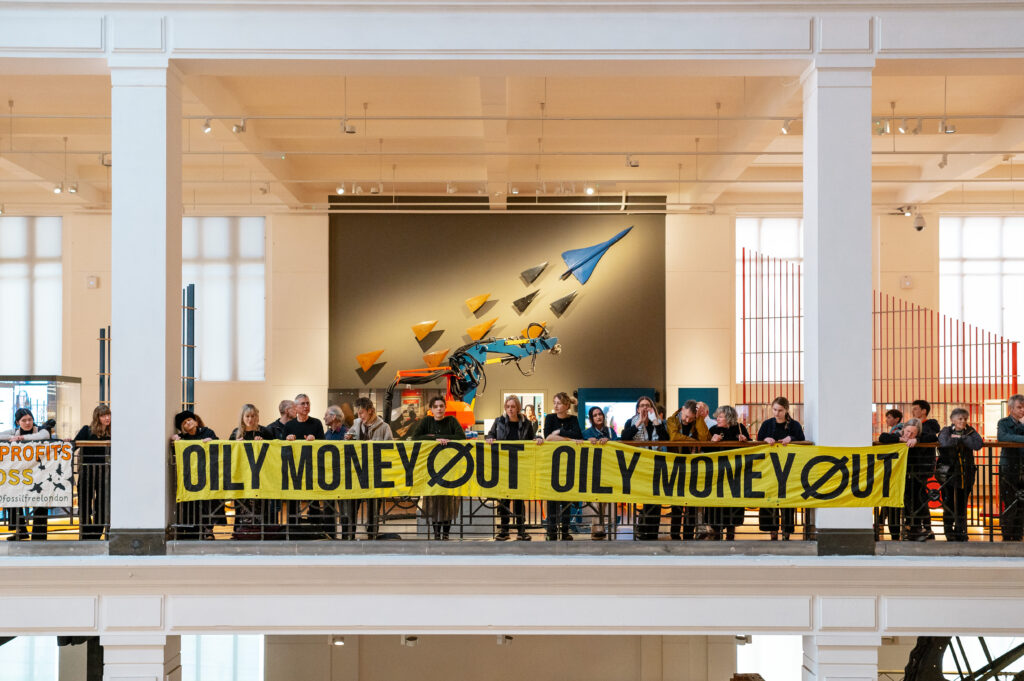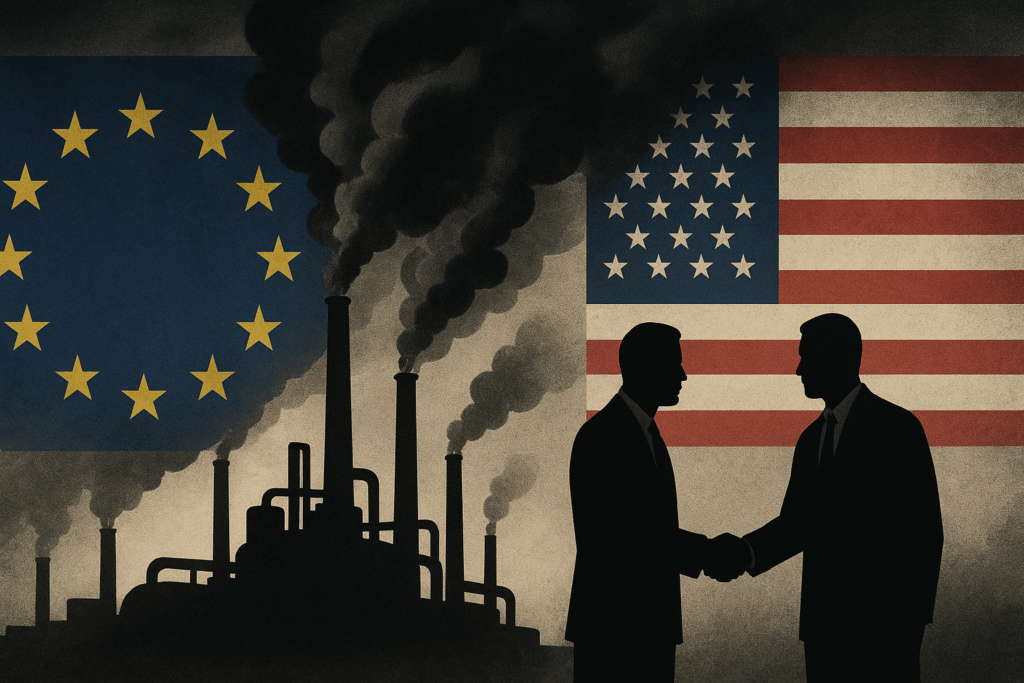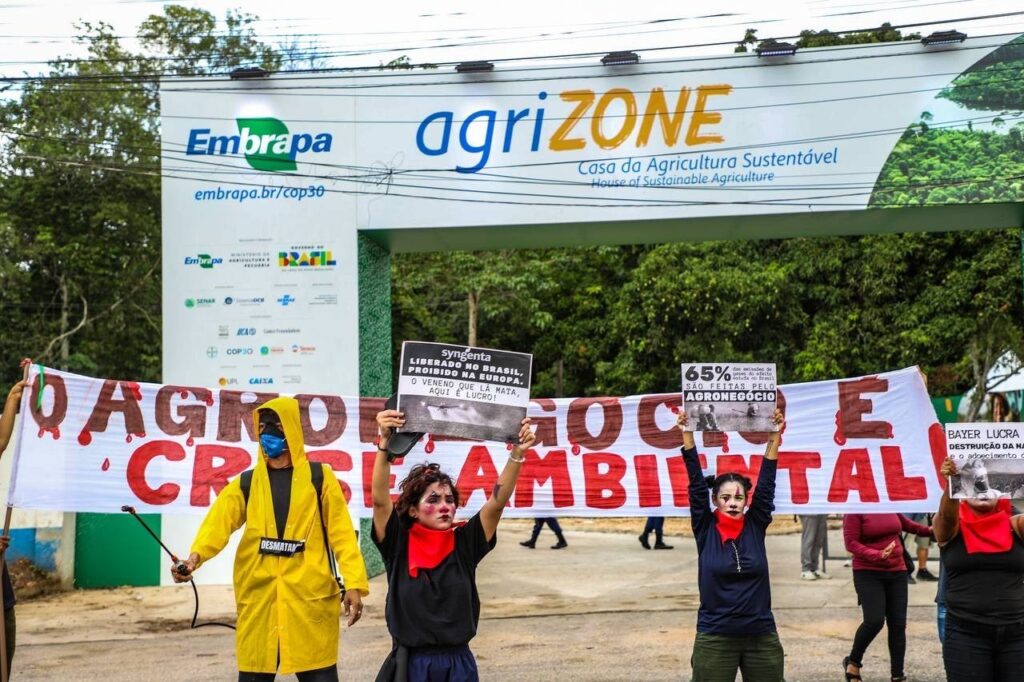This story has been published in partnership with Intercept Brasil.
Oil giant Shell tapped into Brazil’s love of the soap opera to sell more fossil fuels, hiring famous actors to appear in adverts designed to lure customers to its petrol stations by associating the company with clean energy.
The “Caminhos do Amanhã” (“Paths of Tomorrow”) campaign originally featured Sophia Abrahão and Sérgio Malheiros, two of Brazil’s biggest soap and film stars, discovering Shell’s electric car charging points as they plan for life with their first baby. The plot unfolded in ad breaks during primetime soap operas watched by millions of Brazilians in 2023, before being rebooted late last year, this time fronted by popular social media influencers and their children.
British-owned ad agency VML, which devised the campaign, aimed to use the public’s positive associations with clean energy to “strengthen trust in Shell” and in turn increase sales of car fuels at its stations, including petrol, according to documents obtained by DeSmog.
This approach — known as the “halo effect” in the advertising industry — increased fuel sales by 13 percent, according to the documents, which did not give further details on the time period or total volumes of fuels sold.
VML’s plan to make Shell “strongly associated with new energy sources” contrasts with the reality of the oil company’s business. Shell Brasil has made car charging available at less than 1 percent of its petrol stations in Brazil while the campaign has run over the past two years. In March, the company dropped the vast majority of its solar and onshore wind plans in Brazil.
The United Nations COP30 climate talks begin on November 10 in Belém, a city near the mouth of the Amazon River. Brazil’s role as host is to keep nations in agreement on the pace and process of weaning themselves off the petrol and other fossil fuels causing climate breakdown.
VML’s tactics have raised concerns among climate advocates, who say that advertising and public relations agencies — often owned by Western conglomerates such as VML’s London-based owners WPP — are making it harder for governments and civil society in the Global South to argue for a transition away from fossil fuels.
Critics say the agencies creating such campaigns help oil and gas clients present themselves as investing heavily in clean energy, while they double down on fossil fuel extraction and flood climate negotiations with lobbyists.
“VML is helping turn misleading narratives into perceived truth,” said geographer and ecologist Adriano Liziero, who runs a popular environmental Instagram channel in Brazil. “This is confusing the public and obscuring the political and economic mechanisms that keep fossil fuels in place — contrary to what science indicates.”
Shell spent up to $10 million on the Caminhos do Amanhã campaign during its launch year in 2023, according to the documents. The story of Sophia and Sérgio, who are also a couple in real life, was shown hundreds of times during free-to-air channel TV Globo’s biggest soap operas — known in Brazil as “novelas” — as well as in cinemas, on billboards, and on social media.
Bursting with infidelity, betrayal and cliff-hangers, novelas feature many of the country’s most recognisable celebrities, making them an ideal vehicle for corporations to seed their messaging.
In 2023, the UK’s advertising regulator, the Advertising Standards Authority, banned a Shell ad campaign, also made by VML, for overstating the oil company’s clean energy initiatives.
Last month, VML’s UK CEO Pip Hulbert, who previously led the Shell account at the agency, was promoted to international chief client officer.
Hulbert, VML, WPP, and Shell did not respond to requests for comment.
Brazil’s Oil Expansion
Shell is the second biggest oil producer in Brazil after Petrobras, the country’s national oil company. Their combined exploration plans are poised to drive Brazil up from the seventh to the fourth largest oil and gas producer in the world.
In March, Shell Brasil greenlit a new offshore project that will produce 120,000 barrels of oil a day by 2029 and announced plans for another.
Nevertheless, in a new version of the Caminhos do Amanhã campaign launched in October last year, Shell continued to emphasise clean energy.
In this version, YouTube and Instagram videos featured Brazilian social media influencers telling their young children how “innovation and investment in technology” by Shell is creating a more sustainable world. The videos received hundreds of thousands of likes each, with the top performing video by singer Zanq being watched 13 million times.
Biologist-turned-influencer Atila Iamarino, who has over 1 million followers on Instagram, posted videos explaining technical energy topics including carbon neutrality — when as many carbon emissions are being captured as emitted.
Other clips showed the influencers talking about and trying out Shell’s charging points and biofuels.
The Caminhos do Amanhã campaign made Shell the energy company most trusted and most associated with clean energy in Brazil, according to market research referenced in the documents obtained by DeSmog, despite the company’s business model remaining overwhelmingly reliant on fossil fuels.
Shell has electric charging points at just 80 of its 6,500 fuel stations, Shell’s gas station subsidiary Raizen told DeSmog. Shell’s 100 percent ethanol biofuel, which also features heavily in the campaign, is available at less than one in six stations.
Raizen told DeSmog that Shell has paused the expansion of its electric charging programme while the company conducts a “portfolio review.”
Globally, 0.35 percent of Shell’s primary energy production comes from renewable sources, according to a study published this month in the journal Nature.


Petrobras has also faced criticism for running misleadingly green ad campaigns in advance of COP30. The company hired a squad of climate and science influencers to emphasise its research into biofuels, even as the company secured approvals to begin drilling for offshore oil in the Amazon basin.
One of Petrobras’ key ad agencies, Ogilvy, is also owned by the British holding company WPP. Ogilvy’s current 2022-2027 contract with Petrobras is worth over R$450 million ($83 million), according to Petrobras transparency disclosures reviewed by DeSmog.
Pressure Growing for Ad Bans
The advertising industry is increasingly coming under pressure for its role in delaying climate action by creating the impression that major polluters are coming up with viable alternatives to oil and gas — even though their clients are overwhelmingly continuing to do business as usual.
U.N. Secretary General Antonio Guterres has called for a global fossil fuel advertising ban and said the “Mad Men” running advertising and PR agencies should drop their polluting clients.
The strategy behind the Caminhos do Amanhã campaign was “the strongest example I have seen of why advertising by oil and gas companies should be banned, even when they are promoting clean energy projects,” a former employee of a WPP ad agency told DeSmog.
“The message is one of transition, but the outcome is growing the status quo and moving us away from a viable future,” said the former employee, who declined to be named for fear of professional repercussions.
Some local and national governments in Europe have introduced restrictions on fossil fuel advertising, including France and Spain, but so far, no South American governments have followed suit.
Meanwhile, a growing movement of agencies and ad executives are shunning oil and gas clients. Industry campaign group Clean Creatives says more than 1,500 agencies worldwide have pledged not to work with the fossil fuel industry.
They don’t yet include the biggest agencies in the industry, however — like VML and its owner WPP — where some employees say the type of tactics used in the Caminhos do Amanhã campaign are rarely challenged.
“It just really clearly expresses how disconnected the people who are making those ads and branding exercises are from the actual results,” said a former employee at WPP branding agency Landor, who has previously worked on projects for oil giant BP, and who also declined to be named to avoid work repercussions.
“You kind of get desensitised to the idea that it is problematic and you get socialised to those kinds of approaches,” they added.
Additional reporting by Juliana Aguilera.
This story has been published in partnership with Intercept Brasil.

Subscribe to our newsletter
Stay up to date with DeSmog news and alerts






